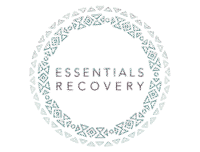Addiction recovery is a deeply personal and often challenging journey, but it is also a process filled with opportunities for growth, healing, and transformation. While no two recovery paths look exactly alike, there are proven strategies that can help create stability, foster resilience, and support lasting sobriety. Recovery is about more than abstaining from substances—it is about creating a life that feels meaningful, healthy, and worth protecting.
By understanding and embracing effective strategies, individuals can build a strong foundation that empowers them to navigate challenges, rebuild relationships, and rediscover purpose.
Understanding the Recovery Journey
Recovery is not a one-time decision; it is a continuous process of change and self-discovery. At the heart of recovery is learning how to live without relying on substances and finding healthier ways to cope with life’s challenges. This means addressing the physical, emotional, social, and spiritual aspects of healing.
It is important to recognize that recovery often comes with ups and downs. Some days may feel empowering, while others may bring unexpected struggles. Accepting this reality helps reduce frustration and reinforces the need for strategies that support long-term success.
Building a Strong Foundation Through Detox and Treatment
For many, the journey begins with detoxification, where the body eliminates substances and starts to heal physically. Detox is only the first step, but it is essential for creating a clean slate. Medical supervision during detox ensures safety and comfort while setting the stage for deeper healing.
Following detox, structured treatment programs provide education, therapy, and tools to address the root causes of addiction. This phase is critical for developing insight, building coping skills, and creating the mindset needed for sustainable change.
The Importance of Structure and Routine
One of the most effective strategies in recovery is developing a structured daily routine. Substance use often thrives in chaos, and recovery flourishes in consistency. A balanced schedule reduces idle time, supports accountability, and helps create a sense of normalcy.
Routines may include regular wake-up times, nutritious meals, exercise, therapy or support meetings, and hobbies that bring joy. Over time, these small, consistent habits form the backbone of a stable recovery lifestyle.
Developing Healthy Coping Skills
Addiction often begins as a way to cope with stress, pain, or difficult emotions. In recovery, learning healthier coping mechanisms is crucial. Stress will always be part of life, but how you respond to it determines whether sobriety can be sustained.
Effective coping strategies might include journaling, meditation, deep breathing, physical activity, or talking through challenges with a trusted person. Engaging in creative outlets such as art, music, or writing can also provide a healthy way to process emotions. By practicing these new skills, individuals replace old habits with healthier, more constructive ones.
The Power of Support Systems
No one should go through recovery alone. Building a strong support system provides encouragement, accountability, and a sense of belonging. Friends, family, sponsors, mentors, and recovery groups all play a role in supporting sobriety.
Peer support groups are particularly valuable. Being in a community of people who understand the challenges of addiction creates empathy and connection. Hearing others share their journeys and sharing your own helps reduce isolation and reinforces the belief that lasting recovery is possible.
Prioritizing Mental and Emotional Health
Mental health and addiction are closely linked, and addressing emotional well-being is essential for recovery. Many people with substance use disorders also face anxiety, depression, or trauma. Without addressing these underlying issues, the risk of relapse can increase.
Therapy provides a safe space to explore emotions, develop healthier thought patterns, and learn strategies for emotional regulation. Practices like mindfulness and meditation can also strengthen awareness and help individuals stay grounded in the present moment.
Physical Wellness as a Recovery Tool
Physical health plays a powerful role in the recovery process. Addiction often takes a toll on the body, but rebuilding physical wellness improves mood, energy, and overall resilience. Eating balanced meals, exercising regularly, and getting quality sleep are fundamental to recovery success.
Exercise in particular offers multiple benefits. It reduces stress, releases endorphins, and builds self-confidence. Even simple activities like walking, yoga, or stretching can make a meaningful difference in daily well-being.
Managing Triggers and Cravings
Triggers are situations, people, or emotions that increase the urge to use substances. Cravings are natural, but learning to manage them is key to long-term success. Recognizing personal triggers and developing strategies to respond to them reduces the risk of relapse.
Strategies for managing cravings may include grounding techniques, distraction through positive activities, or reaching out to a trusted support person. Having a plan in place for when cravings occur creates confidence and reduces impulsive decision-making.
Embracing Personal Growth and Purpose
Recovery provides a unique opportunity for self-discovery. Without substances as a distraction, individuals can explore what truly matters to them. This may include pursuing education, advancing in a career, volunteering, or engaging in hobbies that bring joy.
Personal growth also includes rebuilding relationships that may have been damaged by addiction. Reestablishing trust takes time and effort, but it can be deeply rewarding. By practicing honesty, accountability, and open communication, relationships can grow stronger and more supportive.
Practicing Self-Compassion
Recovery is not about perfection. Mistakes and setbacks may happen, but they do not define your journey. Practicing self-compassion helps individuals remain resilient and motivated even during difficult times.
Rather than focusing on past mistakes, self-compassion emphasizes progress and the courage it takes to keep moving forward. This mindset reduces shame and encourages ongoing growth.
Staying Connected to Recovery Resources
Long-term success in recovery requires consistent connection to supportive resources. Therapy, counseling, peer groups, and wellness programs all provide ongoing encouragement and tools to navigate challenges.
Staying connected also prevents isolation, which can be a significant risk factor for relapse. Whether through regular group meetings, online communities, or one-on-one therapy, these resources offer stability and accountability throughout the recovery process.
The Role of Spirituality and Inner Strength
For many people, recovery includes a spiritual or reflective component. This may involve traditional faith practices, meditation, mindfulness, or simply developing a deeper sense of inner peace and connection. Spirituality provides strength, purpose, and a framework for making meaning out of challenges.
Even for those who are not religious, finding a sense of inner grounding can be transformative. It helps create balance, fosters gratitude, and strengthens resilience during difficult times.
Cultivating Gratitude and Mindfulness
Focusing on gratitude and practicing mindfulness can reshape how you view recovery. Gratitude shifts attention from what has been lost to what has been gained, such as renewed health, supportive relationships, or personal growth.
Mindfulness, the practice of staying present and fully engaged in the moment, reduces stress and increases awareness of triggers and emotions. Together, gratitude and mindfulness create a positive outlook and reinforce the value of staying on the recovery path.
Creating Long-Term Goals
While early recovery focuses on stability, long-term goals provide motivation and direction for the future. Goals may include pursuing education, improving health, repairing relationships, or building financial stability.
Breaking goals into smaller, manageable steps helps create a sense of achievement and builds confidence along the way. These goals act as reminders of the progress being made and the life being built through recovery.
Conclusion: A Lifelong Journey of Growth
Addiction recovery is more than the absence of substances—it is the creation of a life filled with purpose, balance, and fulfillment. Success in recovery comes from developing structure, building support systems, practicing healthy coping skills, and nurturing both physical and emotional well-being.
While the journey may be challenging, each step forward represents strength, resilience, and the power of change. With the right strategies, recovery is not just sustainable—it can become a source of deep joy, empowerment, and transformation. Call us today at 855-509-1697.



